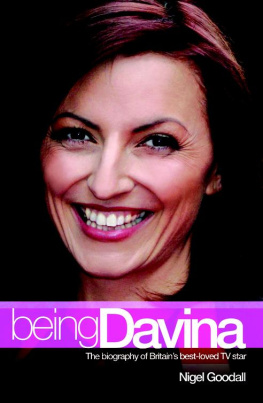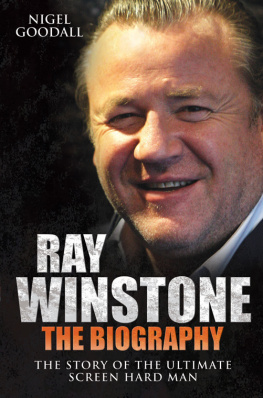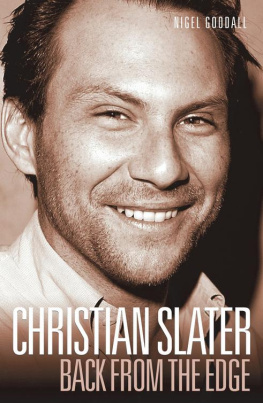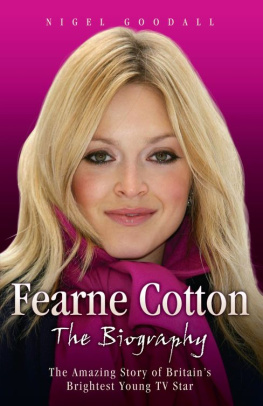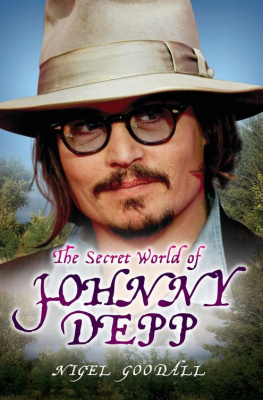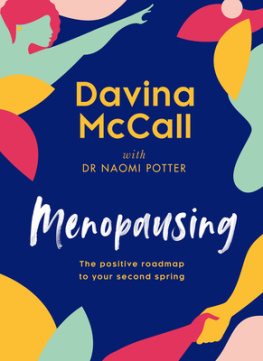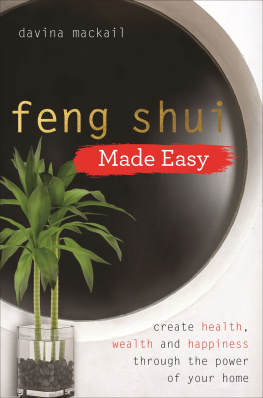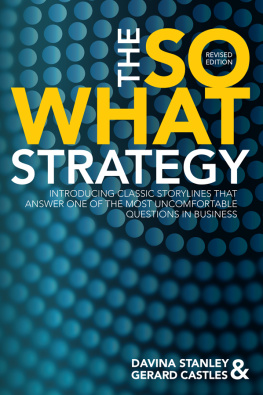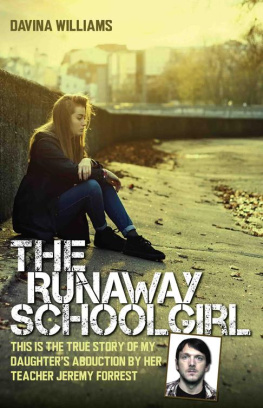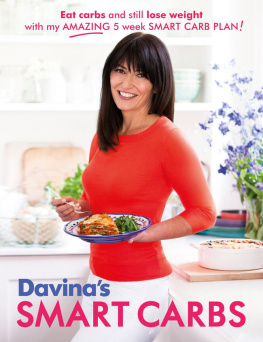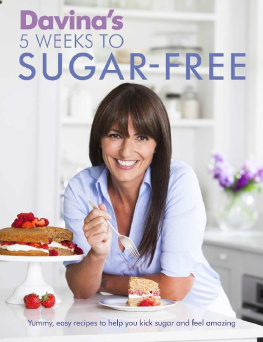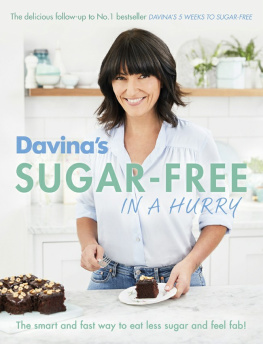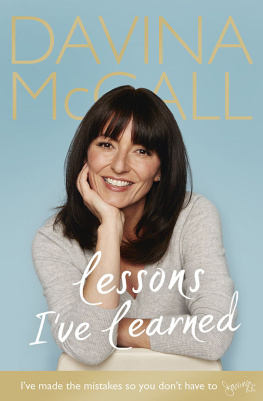This book is also dedicated to the memory of Kate King, one of the most caring and kindest people you could ever wish to meet. Her untimely death from cancer, in 2002 when she was only 40, is a loss to all that knew her. During my early writing career, Kate transcribed many an interview for me, simply and unselfishly to help me out. I will always cherish her friendship, love and care.
A big thanks to everybody who helped and encouraged me as this book took shape: my son and daughter, Adam and Kim who are more excited about this book than any other I have done. Davina is one of their favourites after Eastenders Phil and Grant Mitchell (sorry Davina); everybody at John Blake Publishing, especially my editors Vicky McGeown and Mark Hanks; my copy editor Jane Donovan; my research team Keith Hayward, Kerry Peddar and Mark Barker, who all did me proud with the information they dug up; Neil Rees for his recollection of Gods Gift and for guiding me to information on Kylie Minogues Word Is Out music video; Melanie Beadon at 2 entertain for the Davina 30 Minute Workouts DVD; Elkie Brooks for sharing her thoughts with me about Reborn In The USA; Sean Delaney at the British Film Institute for his help with the television listing; Elizabeth Cunningham for the Top Gear tape and the title of this book; Charlotte Rasmussen for your eagle eye, critique and being such huge fan of my previous works. Thanks too, to Carol for my website, and Anne and Jan for suggesting Davina would make a good book; and Mike and Caroline for you know why. I would also like to mention the many excellent websites dedicated to all things Big Brother, particularly the Celebrity Big Brother UK Website (bigbrotherwebsite.net), which I consulted during my research. And last but not least, thanks to the Royal Literary Fund for their support. Without them this book would simply not have been possible.
Davina McCall was 15 years old when she turned up at school wearing black leather trousers and a T-shirt ripped across the waist. She had dyed her hair aubergine and was wearing Gothic make-up. It was mufti day at Godolphin and Latymer School in Hammersmith, West London, and, while most girls came dressed like Bananarama wannabes in ra-ra skirts and legwarmers, Davina went punk.
Although in the spring of 1983 the year Karen Carpenter died of anorexia nervosa, the eating disorder about to plague Davina punk was probably no longer embraced by the mainstream. Punk dress and music were now considered wild, weird and antisocial, and the people who liked it werent much better, but, for Davina, it was essential for the attention she craved. During the same year, she remembers she shaved her head because she was sick of people constantly saying she dyed her hair blonde to make herself look like Princess Diana: I was mortified because I was trying to be trendy and tough.
It wasnt the first time that Davina had reinvented herself. Three years earlier, when punk was still in vogue, she was simply horrified when she arrived for her first day at school. I was this prim and proper little thing who turned up on her first day wearing white socks pulled up to her knees, a little A-line skirt, a Pringle haircut and was carrying a briefcase from WH Smith that pulled out like a doctors case. And I walked in and saw everybody there were all these punks and trendy types, it was a nightmare. They all had streaked hair and their socks were round their ankles, and they all had Millets bags with The Sex Pistols and The Clash written on them. I had never heard of those bands and I just thought, I am going to die. Ground, eat me up, please!
But actually kids are brilliantly resilient and within three days I too had streaked my hair. And I went and got my bag from Millets and wrote the names of bands I never heard of before on it because I wanted desperately to fit in. During this time she also recalls that she even changed the way she spoke when she got a bit of hassle from some kids in Shepherds Bush on her way to school: So I started talking loik vat for survival because I thought I was going to be beaten up.
It was like Sandra Dee from Grease turning into a wild Pink Lady! I never looked back really; it was like a rebirth. When my granny next saw me, she was most perturbed. An old school friend came round for dinner recently and we had such a laugh recalling my third day at school. She says shell never forget it because Id changed so dramatically. And since then Ive been many people, and I like to play different parts of myself sometimes a foxy minx, sometimes quiet and sensitive, sometimes loud and gregarious and theyre all me. Basically, though, she continues, I am two people and they are incredibly different. There is the little girl who was brought up by my grandmother and who was taught very good morals and manners, and right from wrong. And then there is my French side, which I get from my mum and Paris and going out and wild parties, and madness and excitement.
It was after that third day at the school that she started experimenting with her looks she had to. The easiest way to reinvent yourself, she says, is with your hair. Its immediate and its shocking. Ive had black hair, orange hair, blonde hair, and you get a lot of attention as a blonde. When I went dark again, I had to suddenly develop a sense of humour to get noticed I had to work harder for it.
Having learned from an early age that to get on you have to fit in has probably helped Davina become one of Britains most loved television presenters without the need for the kind of fame to be found from being crowned Queen of the Celebrity Jungle. Or being an ex-Atomic Kitten, a member of Girls Aloud or a Sugababe. And fit in she still does, even with the way she talks. She has a sort of middle-class cockney twang to her accent that, according to journalist Paul Bracchi, places her somewhere roughly 30 miles up any motorway heading out of London. But, if the secret of success is an unsettled childhood, Davina was destined for greatness when she was just three years old and was sent off to live with her grandparents. Not because she was difficult or troublesome but because she was, to all intents and purposes, abandoned by her parents when they divorced in 1970.
Davina Lucy Pascale McCall was born on 16 October 1967 in Wimbledon, Southwest London, and was the only child of a French-born mother, Florence, and an English father, Andrew. Florence who already had a daughter, Caroline, from her first marriage was also very glamorous. By all accounts, according to Davina (Div for short), she was a wild sixties person who didnt have it in her to look after me. She was very young when she had me and I dont think she could cope with the responsibility of a child. So she fled from the Yves St Laurent boutique she managed in Knightsbridge and ended up living in an apartment located in the exclusive 8th arrondissement in Paris, near the Champs Elyses.
What is curious, however, is how, if she couldnt cope with looking after Davina, she coped with bringing up Caroline, who had arrived in the world five years before. Florence would have been just 18 years old then, and surely having a child so young would have been far more daunting than having one at 23. But then again it was the decade of rebellion: a decade in which free thinking, free love and free drugs were the buzzwords of a generation. The burgeoning counterculture scene of two years earlier was now in full bloom and the entire world, it seemed, felt the need to go to San Francisco and put flowers in their hair. Just six months before Davina was born, Muhammad Ali refused to be drafted into the US Army to serve his national service as a protest against the war that continued to grind on in Vietnam, and, in the process, was stripped of his World Heavyweight Boxing Championship belt.

